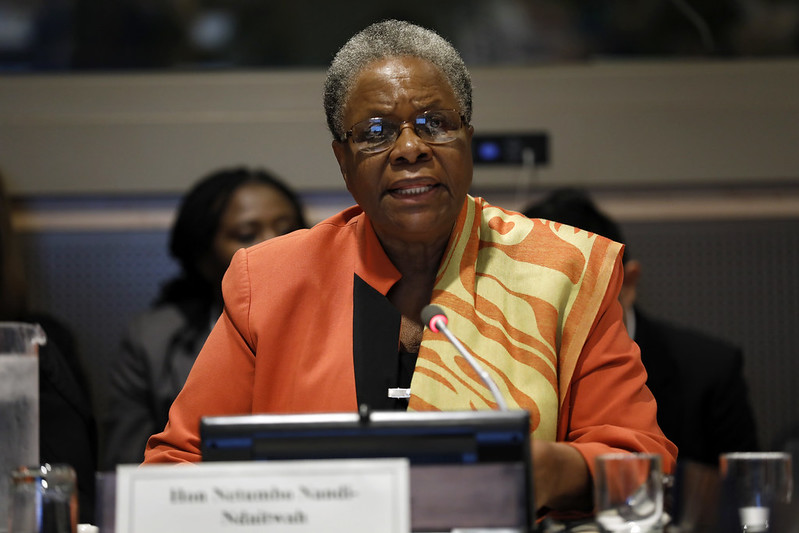Namibian Politics: First Female President Tackles Inequality
 Namibia has made significant progress in reducing poverty over the past three decades, cutting its poverty rate by more than half between 1993 and 2016. However, major challenges remain. The 2021 Namibian Multidimensional Poverty Index (MPI) reveals that more than 43.3% of the population lives in multidimensional poverty, which considers factors beyond income, such as education and access to basic infrastructure. While 17.4% of Namibians live on less than $2.15 a day, the MPI highlights a broader reality: nearly half the population experiences poverty when measured by multiple indicators of well-being.
Namibia has made significant progress in reducing poverty over the past three decades, cutting its poverty rate by more than half between 1993 and 2016. However, major challenges remain. The 2021 Namibian Multidimensional Poverty Index (MPI) reveals that more than 43.3% of the population lives in multidimensional poverty, which considers factors beyond income, such as education and access to basic infrastructure. While 17.4% of Namibians live on less than $2.15 a day, the MPI highlights a broader reality: nearly half the population experiences poverty when measured by multiple indicators of well-being.
Inequality in Namibia
Namibia experiences some of the highest levels of inequality in the world, with a Gini Index of 59.1 in 2015, a measure of wealth distribution across the population. By 2024, Namibia ranked second globally for income inequality, behind only South Africa. This disparity disproportionately affects rural communities, women and children. Addressing these ongoing challenges requires strong and effective political action to drive meaningful change.
Netumbo Nandi-Ndaitwah
At the time of Netumbo Nandi-Ndaitwah’s birth in 1952, Namibia was known as South West Africa and was under South African occupation. According to the BBC, during her teenage years, she joined Swapo, a group resisting South Africa’s white-minority rule. While in high school, a crackdown on Swapo activities led to her arrest and prosecution. Following her release, Nandi-Ndaitwah decided to leave South West Africa and joined other Swapo activists in exile. She continued her activism in Zambia and Tanzania before moving to the United Kingdom (U.K.) to study International Relations. After Namibia gained independence in 1988, Nandi-Ndaitwah returned home and joined the then-Swapo-led government. Throughout her political career in Namibian politics, she has been a figurehead for women’s rights in Namibia.
A Vision for Reducing Inequality
Through her efforts, the Combating of Domestic Violence Act passed the National Assembly in 2002. She has steadily advanced in Namibia’s male-dominated political arena and, in February 2024, became the country’s vice president. By December 2024, Nandi-Ndaitwah made history as Namibia’s first female president, securing more than 57% of the vote. Although she has yet to outline specific plans, the president-elect has promised significant change, stating, “We must have radical shifts in addressing the plight of our people.” In her victory speech, according to Reuters, she highlighted the need for a more equitable distribution of wealth and land reforms to address disparities between Namibia’s social groups.
Looking Forward
Nandi-Ndaitwah’s election as Namibia’s first female president marks a historic milestone for Namibian politics and its marginalized communities. Her leadership represents a long-awaited opportunity to tackle systemic poverty and inequality that have persisted since the era of white-minority rule.
As she prepares to take office, expectations are high for land reforms, equitable wealth distribution and improved access to education and health services. Her decades-long advocacy for women and vulnerable populations provides hope for actionable change.
While Nandi-Ndaitwah’s election is cause for celebration, her success will ultimately be measured by her ability to transform promises into policies that address Namibia’s deepest inequalities and ensure that underrepresented groups have the opportunity to thrive.
– William Pickering
William is based in Nottingham, UK and focuses on Good News and Technology for The Borgen Project.
Photo: Flickr
